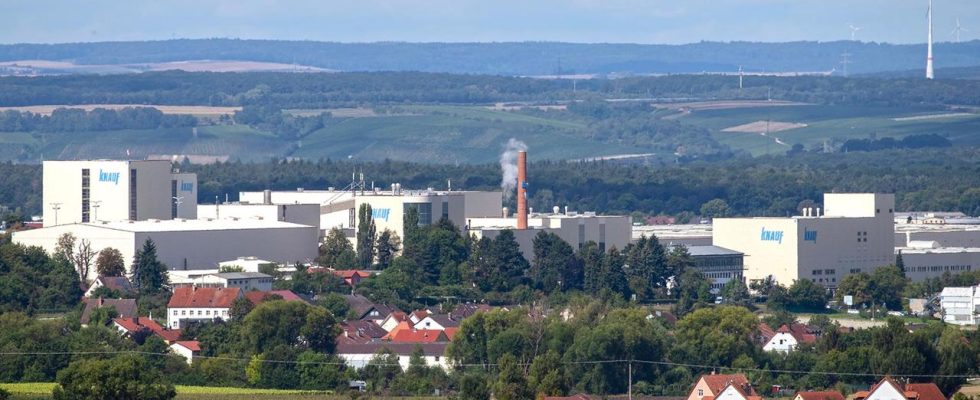The Franconian family company Knauf, one of the largest building materials manufacturers in the world, is withdrawing from Russia. Previously the company was due to ARD-Research came under criticism again.
The Franconian family company Knauf, one of the largest building materials manufacturers in the world, is withdrawing from Russia. Previously the company was due to ARD-Research came under criticism again.
The building materials manufacturer Knauf wants to completely withdraw from the Russian market. The family group confirmed the planned exit in Iphofen, Lower Franconia: “In light of current developments, the Knauf Group has decided to separate from its business there in Russia after more than 30 years.”
The company intends to “transfer the entire business in Russia, including raw material extraction, production and sales, to local management in order to preserve the jobs of its more than 4,000 employees in the future.” The planned transaction is subject to approval by the relevant authorities in Russia. The group did not give reasons for terminating its Russian business.
Building materials from Knauf on Russian construction sites
The family group, which is one of the largest building materials manufacturers in the world with sales of around 15.4 billion euros in 2022, recently came under criticism again because of its business in Russia. Research of the ARD-Politics magazine monitor At the beginning of April, they revealed that building materials from Knauf were being used on several Russian construction sites – including one belonging to the Russian Ministry of Defense – in the occupied Ukrainian city of Mariupol.
Reporters had evaluated extensive image and video material as well as business reports and other documents and repeatedly discovered plaster bags with the inscription “Knauf” on the construction sites.
Ukrainian ambassador calls for tougher sanctions
The Ukrainian embassy has now also responded to the research. Ambassador Oleksii Makeiev describes the Russian reconstruction of the occupied Ukrainian territories in Monitor-Interview as part of Russia’s “genocidal warfare.”
Knauf’s indirect participation in this reconstruction means that “such a company is on the side of the occupying power. And that this fight is supported by German companies.” With regard to the German federal government, Makeiew is calling for sanctions to be tightened. The embassy has not yet responded to Knauf’s planned withdrawal from business in Russia.
“No influence on end use”
The Knauf company emphasizes that it has no longer delivered goods to Russia since February 2022 and will no longer export anything from Russia. Knauf also does not deliver any building materials to Mariupol from the EU.
The company operates a factory near Kiev and 14 production sites with 4,000 employees in Russia. In a statement on the ARDThe report said that Knauf condemns the war of aggression against Ukraine and is following all sanctions imposed by the EU, Great Britain and the USA against Russia. “We strongly reject the accusation of not doing so.”
Knauf produces building materials, but is not involved in construction projects as a builder or investor. “Knauf does not have any direct delivery contracts with consumers or processors of Knauf products in Russia. Our products reach end customers there through many different dealers that are independent of Knauf. We have no influence on how and where end customers use our products.”
Doubts about official representation
There are doubts about this representation. That’s how they had it monitor-Research showed that an official Knauf dealer in Russia was advertising a residential building project in Mariupol that was built on behalf of the Russian Ministry of Defense. Knauf products were also used on this construction site.
The construction supplier Knauf, which is entirely family-owned, is represented in over 90 countries and, according to its own information, operates more than 300 plants with around 40,000 employees on all five continents.
With information from Véronique Gantenberg, WDR

